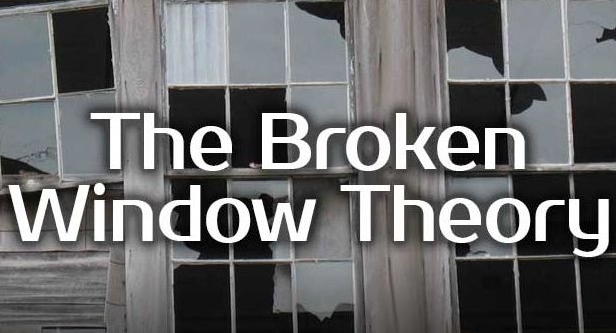The city's "Neighborhood Compliance Initiative" is designed to shine a light on rundown and deteriorating homes that threaten the safety and property values of a neighborhood.
On Tuesday the City Council will turn the tables a bit, however, shining a light on what some have called an "obnoxious" practice that intimidates homeowners with threats of fines, civil action and possible eviction for a little "peeling paint" or "cupped shingles."

The "Broken Window Theory" that has inspired the current policy reasons that houses in "disrepair and not in compliance lead to suppressed values of nearby homes and blighting issues of neighborhood development and revitalization."
Prior to the City Council discussing the initiative, Jim Grant of Building, Zoning and Licensing Services, will explain the merits of the initiative and why it's important to the city.
We get it that no one wants to have a rundown, ramshackle house next to theirs. It can hurt local property values and is an eyesore.
But this also turn into a very serious intrusion by government into a private citizen's affairs and should not be taken lightly.
Rochester's Neighborhood Compliance Initiative appears to have been put into effect with little public input.
And while its quest is noble - to reduce neighborhood blight and lessen crime - its implementation has caused a lot of concern among homeowners who feel squeezed by the city to complete sometimes costly repairs they just can't afford.
During a Nov. 1 meeting of the Codes and Ordinances Committee, Steve Beaudoin, R-Strafford District H9, brought up the plight of a woman, who he said was very upset when she was cited by code enforcement for some peeling paint and cupped shingles.
"She is not in a financial position to replace her roof, she's on Social Security," said Beaudoin, who is working on state legislation that would mandate all code issues be enacted at the state level.
Beaudoin said going into a single family home and citing people for some peeling paint or "saying they need a larger egress window" is "over the top."
Many agreed with Beaudoin's assertion, including City Councilor David Walker, who said a practice of sending teams of code enforcement into neighborhoods to look for violations and cite homeowners is "obnoxious."
A suggestion that surfaced during the codes meeting that this elderly woman could be forced into court action if she couldn't raise the funds to fix the roof and paint her home is patently unacceptable.
And the possibility that she could be forced out of her home is thoroughly untenable.
It can cost $10,000 for a new roof. How many of us have that kind of money in our rainy day fund? We can't raise taxes to pay for a new roof. That's for sure.
We believe it's the city's Neighborhood Compliance Initiative that is in need of repair, and the City Council, the mayor and city residents all deserve their say in how it gets fixed.
- HT













